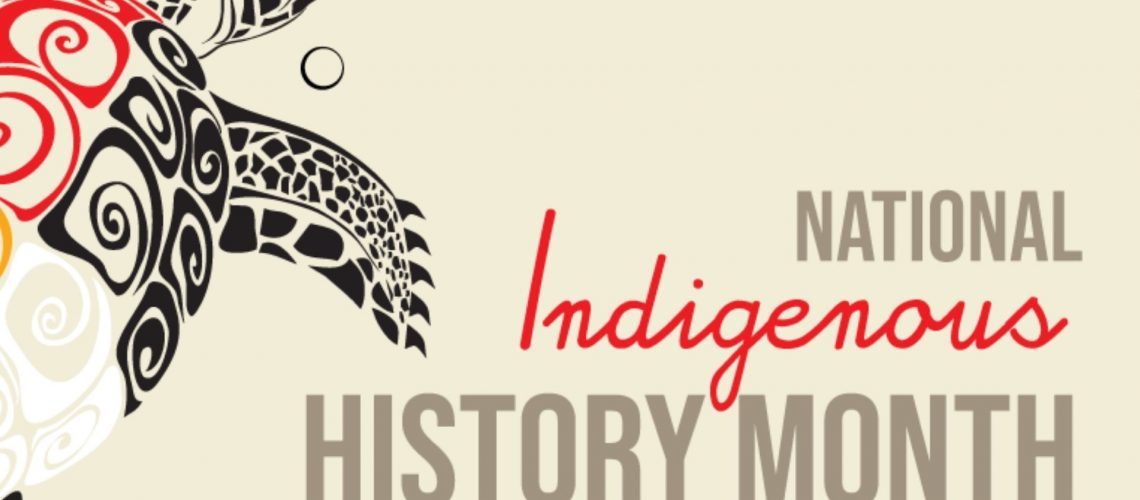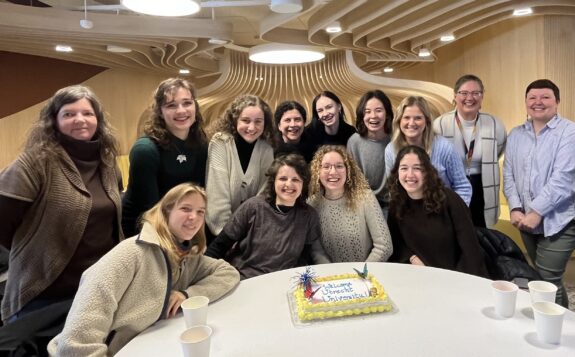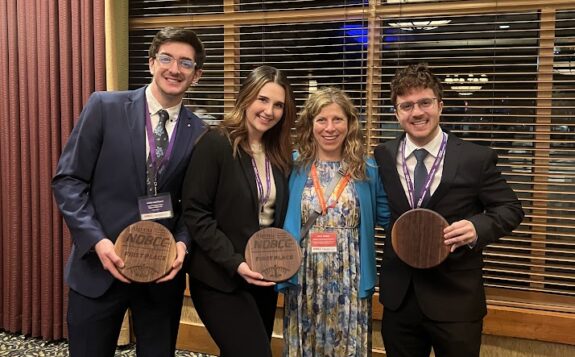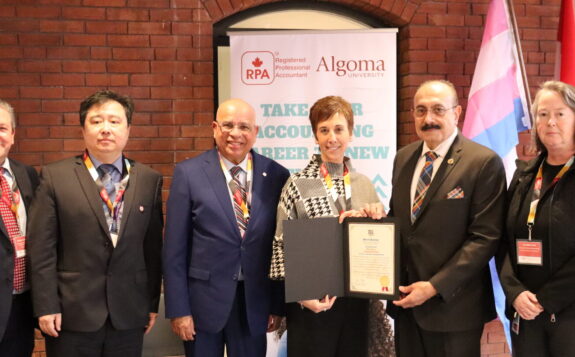Indigenous History Month is a time for all in Canada to reflect upon our responsibilities as treaty people. It is also a time to learn about the histories, cultures, contributions, and strength of First Nations, Inuit and Métis peoples. To read more see this link.
June 21 was chosen because of its alignment with the summer solstice, which is a significant day to the many Indigenous Peoples and communities who have celebrated on this day for generations. The day was created with the support of various Indigenous groups, and passed by Governor General Romeo LeBlanc. In 2009, the House of Commons passed a motion to make the month of June National Aboriginal History Month.
In light of the recent tragic news of the findings at the Kamloops Residential School, it becomes more clear how the work towards healing and reconciliation at Algoma University, in partnership with the Children of Shingwauk Student Association, the Shingwauk Anishinaabe Student Association, Shingwauk Kinoomaage Gamig and the Anishinaabe communities locally, is of utmost urgency. Please read the joint press release for additional information.
Throughout the month of June, several learning opportunities will be hosted across the University:
Saturday, June 5th at 1 pm – Virtual Anishinaabe Graduation Ceremony. This event features world-renowned author and Ojibwe Language specialist Dr. Anton Treuer (pronounced troy-er), Professor of Ojibwe at Bemidji State University. Get a ticket here
Thursday, June 10, 12-1:30 – Dr. Heidi Kiiwetinipinesek Stark (Turtle Mountain Ojibwe), Associate Professor of Political Science at the University of Victoria. Her primary areas of research and teaching are Indigenous law and treaty practices, Aboriginal and Treaty Rights, and Indigenous politics in the United States and Canada. Get a ticket here.
Wednesday, June 16, 12-1:30 – Ted Nolan is a member of the First Nations Ojibway tribe, a former professional hockey left winger, former head coach of the Buffalo Sabres, Latvia men’s national ice hockey team and a motivational speaker. Get a ticket here.
Sunday, June 20th, 1 pm – 3 pm Liz Webkamigad (Ojibway – Odawa – Pottowattomi from Wikwemikong, Manitoulin Island) will offer Strawberry Moon teachings! Liz is an Anishinaabe educator and former Director of Shingwauk Residential School Center. The registration link will be shared. Get a ticket here.
Wednesday, June 23, 4:00-5:30 pm EST -Jeff Corntassel (Tsalagi, Cherokee Nation) Indigenous Laws on Indigenous Lands: Pathways to Land Back and Indigenous: Dr. Jeff Corntassel is an Associate Professor and Graduate Advisor in the School of Indigenous Governance at the University of Victoria Acting Director of the Centre for Indigenous Research and Community-Led Engagement (CIRCLE). His research and teaching interests focus on “Everyday Acts of Resurgence” and the intersections between Indigenous resurgence, climate change, gender, and community well-being. Register here.
Friday, June 25, 12-1:30 pm – Teddy Syrette (They/Them/Theirs): Teddy Syrette (Ozhawa Aanung Kwe – Yellow Star Woman) is a 2-Spirit, Anishinaabe person of Batchewana First Nation near Sault Ste. Marie Ontario. Teddy is an artist and storyteller. They are also advocates for 2-Spirit/Queer-Trans Indigenous People and their communities.
They have a diploma in Social Service Work-Native Specialization and their background is in social justice, theatre and bingo. Teddy currently lives, loves and laughs in Baawaating with their dogs Hortus and Jack.
Teddy’s presentation on 2SLGBTQQIPA+ will help participants explore what they know and what they think they know about 2Spirit and Queer-Trans Indigenous experiences and histories. Participants will also review some of the 2SLGBTQQIPA+ Pride history of Canada and engage in a fun trivia review game. Come with an open heart, mind and spirit. Register here.
Sunday June 27th at 1pm–Karen Boyer: Learn to make 3 Sisters Soup and bannock at the Community cook-along with Anishinaabekwe Karen Boyer. The recipe is listed on the Eventbrite registration page and we invite you to join us in cooking and learning about the 3 Sisters by preparing supplies in advance. Register here.
Shingwauk Kinoomaage Gamig has a new YouTube channel! Please subscribe and access videos of SKG’s past events in case you missed them!
Upcoming events organized by the Shingwauk Anishinaabe Student Association (SASA), the Anishinaabe Initiative Division (AID) and Shingwauk Kinoomaage Gamig (SKG) will be posted soon!
As part of Indigenous History Month, we will share important facts and teachings on different themes through our social media campaign titled: “Did you know that ….” Stay tuned.
Monday, June 28th, 12:00 – 1:30 pm– EJ Kwandibens A conversation about residential schools, retriggering and retraumatization of indigenous peoples EJ Kwandibens, also known as Anikay-Keesic, is a member of the Loon Clan and is of Northern Woodland Anishiinaabe (Ojibway) of the Waahbiidaahgaah (Whitesand) First Nation community which is a part of the Robinson Superior 1850 Treaty region located 21 hours north of Toronto.
EJ has over two decades of work experience for cultural awareness development in healthy living. He has worked across many sectors such as, Educational Institutions, Correctional Services, Social Services, Child Welfare and Mental Health. He advocates the power of change through Indigenous Cultural Modalities.
The values and principles guiding his Indigenous ways of knowing and being stems from intergenerational knowledge transfer. Oral traditions form the foundation of Aboriginal societies, connecting speaker and listener in communal experience and uniting past and present in memory. The philosophy of “Miino Biimaahdizewin: Balanced Good Life” is a reclamation of the self and one’s ability to be interconnected through a holistic cultural lens.
The presentation will critically reflect the recent discovery of the 215 remains found at the former Kamploops Indian Residential School on Tk’emlups te Secwepemc First Nation in Kamploops, B.C. and how this impacts Indian Residential School survivors and children of survivors with the need to heal moving forward. EJ will explore the retriggered and retraumatization that occurs with each discovery and what this means in the healing and reconciliations processes. Register Here
Wednesday, June 30th, 12:00 – 1:30 pm– Germaine Trudeau-Elliott, B.A., MSW Reclaiming Indigenous Health Practices Germaine Trudeau-Elliott is Anishinaabe Kwe, of the fish clan from Serpent River First Nation. She is currently the Executive Director of the Mamaway Wiidokdaadwin Interprofessional Primary Care Team under the umbrella of the Barrie Area Native Advisory Circle. She has held this position since 2018. Prior to this, she worked for 12 years as the manager for the Enaahtig Aboriginal Community Mental Health Program. She is a former member of the Joint Management Committee of the provincial Aboriginal Healing and Wellness Strategy (1997-2002 and 2004-2006). From 2005 to 2007 she served as a member of the Hate Crimes Community Working Group, appointed by the Attorney General of Ontario.
Since 2010, Germaine has chaired the Indigenous Health Circle of the Simcoe Muskoka region. The Indigenous Health Circle is a collaborative body which drives health system change for Indigenous communities in the region. She is a current member of the Ontario Health, Central Region Mental Health and Addictions Advisory Group and the Ontario Structured Psychotherapy Implementation Table.
Germaine is an alumna of Algoma University, graduating in 1988. In 2018, she graduated from the University of Toronto’s Master of Social Work Program with a specialization in Indigenous Trauma and Resiliency. She applies trauma-informed practice in the design and delivery of Indigenous primary health care, and currently is focused on the study of the de-colonization of health systems and reclaiming Indigenous health practice. Germaine is a mother of four and grandmother of nine and lives in Orillia, Ontario.
The presentation will focus on the necessity to reclaim Indigenous health practices. It will describe the impact of colonization on the physical, mental and spiritual health of Indigenous people on Turtle Island. The presentation will focus on how unaddressed trauma creates long-term physical illness in the body. It will include a description of emerging Indigenous models of health care, and why ceremony, language and community connection are important elements of good health and Mino Bimaadziwin. Register Here
Below are also opportunities to register for free workshops in Indigenizing curriculum from the University of Windsor:
July 13 – Understanding Indigenization
July 27 – Meaningful Integration of Indigenous Epistemologies and Pedagogies
August 10 – Engaging with Indigenous communitiesAugust 26 – Incorporating Diverse Sources of Indigenous Knowledge
Check out our EDI website for additional information on several events planned for this week and the Indigenous History Month.
Share Article




